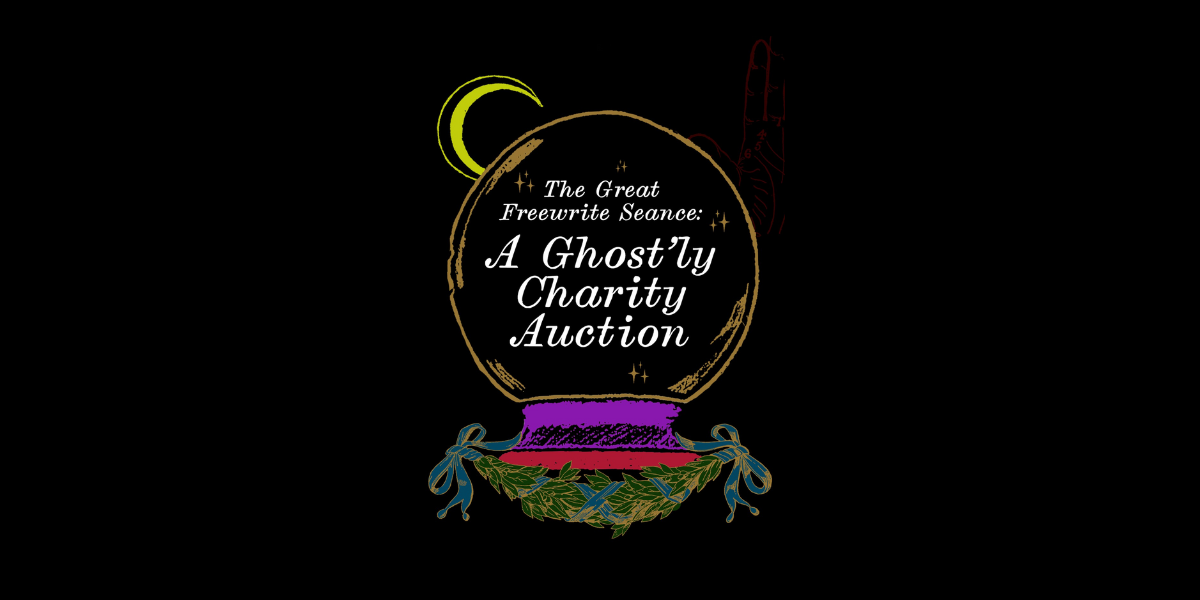From the majestic dragons of George R.R. Martin's A Song of Ice and Fire to the decades of adoration for J.R.R. Tolkien's hobbits, these creatures serve as more than mere embellishments to the worlds they inhabit. They function as essential conduits for exploring complex themes, reflecting societal values, and igniting the imagination of readers.
The Freewrite team is full of fantasy readers (and writers!) so we wanted to unravel the trick to creating dynamic fantasy creatures that leave an impact on both the narratives they inhabit — and the audiences they enchant.
To delve into it, we spoke with E.K. Wiggins, a fantasy author, webtoon creator, and Freewriter writing about dragons in sunny Southern California...
Why do you think people are drawn to fantasy and, in particular, fantastical creatures?
I think it's simple: People want to escape reality and delve into worlds and stories that allow their imagination to run wild. The fact that fantasy (whether written, filmed, or drawn) is such a large part of today's culture means that anyone can find something that attracts them. Everyone can find something that transports them to wonderful worlds and takes their eyes — and minds — off life for a moment.
The same goes for fantasy creatures — the rules are boundless, new monsters are created all the time, and the old familiar ones remain classic.
People love believing in fantasy creatures because they’re not ordinary — they’re unique and unforgettable. And new fantasy keeps the genre fresh and thriving.
That's how I feel. For years, I could only write nonfiction for school. Why write nonfiction when we live in reality?
What's the most influential fantasy creature, in your opinion?
Dragons, hands down.
They’re so prominent in fantasy culture of decades past, yet they’re never boring because they’re constantly being recreated in original ways. With popular productions like House of the Dragon and Lord of the Rings: The Rings of Power, for example, these reptiles aren’t going away anytime soon (if ever!).
I think I’m mainly drawn to them because of how much you, as an artist or writer, can reinvent them while they still remain familiar.
And I love how many real-world legends describe and depict encounters with these beasts! There are even passages of Biblical scripture that describe dragons or dragon-like creatures. All of that adds a history and realism to dragons that other creatures can’t quite claim.

How has the dragon been depicted throughout history?
Dragons were common in written tales and verbal legends during the Renaissance period. In Europe (and the West) dragons were considered ruthless murderers and savage guardians of their possessions, taking exuberant control over their innocent prey and dealing harshly with the rebellious!
Many of these tales were of mighty warriors facing off against these brute monsters (e.g. the Beowulf manuscripts).
Conversely, in some Asian cultures, including China, dragons were seen as signs of luck and blessing. They often wielded powers used to benefit the human race and sometimes communicated with people. They were far more benevolent and kind than their Western counterparts!
The Beowulf manuscripts and the Bible depict and speak of dragons directly. Beowulf’s scaly opponent and Satan (depicted in the book of Revelation as a fiery red dragon with seven heads and ten horns!) are both historical examples of dragons written in text. Many more exist, as well as writings about wyrms and other dragon-like creatures.
Some fantasy creatures have cultural roots. How do you navigate those roots while creating something completely new?
Generally, if I create an original character that has a historical or cultural background, I immediately ask myself if anything about my character contradicts the creature’s roots. If it does, I ask myself if I supplied or created a solid backstory for the character that can "override" that history or is strong enough to be a worthy, sensical alternative.
It also depends on the culture and if I wanted to showcase it. In my opinion, this is sort of a "gray area" that could be endlessly debated…
I don’t think its the author’s duty to always pay homage to a character’s roots, unless it’s essential to understanding the story, is required for the plot, or if the author wants to honor the culture it came from.
There have been many times that creatures have been used in literature without any sort of acknowledgement to their origins, simply because there wasn’t enough time to incorporate it, or it wasn't relevant to the current story. It really depends on what the writer is writing and how the character is being used.
How do you create creatures that are believable when they are, by definition, completely unreal?
I begin by deciding what the creature is, in the most barebones way possible. Is it going to be a wyrm? Is it maybe an elf? Is it a dragon? Figure out what your foundation is and then build off of it.
Next, visualize what the creature looks like, how its body is shaped, what unique features it has, and what its face would look like if you stared right into its eyes. Once I’ve visualized it, I’ll usually draw a sketch to solidify the creature’s design.
But don't just write or draw your fantasy creatures (or any sort of characters!) — envision them.
Anyone can take a mental picture of a fantasy creature and write a description of it (like an overweight bridge troll or a talking tabby cat). As writers, our job is not to simply write out a character study for the reader. A writer’s job is to make the creature real.
In order to do that, you have to know how the creature feels, thinks, and interacts. It has to have a personality. I start by imagining this creature’s demeanor, attitude, and character traits.
Ask yourself how they would react to you, your emotions, and your personality — and how their personality would complement or crash with yours. Imagine spending a day to get to know them! Or pretend to interview them.
In other words: it’s not always about what the creature is and how it looks, but who they are!
I guess the true trick to creating awesome, seemingly real creatures is pretty easy: pretend they’re real.

What are you working on right now?
I’m currently working on several different projects, including my first young adult dystopian sci-fi The Exodus Chronicles. This is the first novel I wrote entirely on my Traveler!
Traveler is my go-to. From the car to the folding tray on an airplane, Traveler has literally traveled with me everywhere! I’ve written one and a half manuscripts (almost 140,000 words) on it!
My second project is writing and overseeing the production of my webtoon, “Neko-Neko is a Cat Doll!” Writing a webtoon is very interesting because you have to visualize all the characters, emotions, scenes, and dialogue in every panel concisely (almost like the director of a movie).
My final project is writing the second book in my YA fantasy series Dragod Origins, which I published in December 2023. My world-building for the book took over five years alone, and writing the book took three.
Writing is my diehard hobby, and I aspire to be a hybrid novelist (both traditionally and self-publishing my books) and a serialized webtoon/manga writer.
--

E.K. Wiggins is a fantasy and webtoon author living and working in sunny San Juan Capistrano, California. His love of fantasy creatures — especially dragons — inspired him to create the original storyline and drawings for a series called Dragon Quest, which eventually lead to the inception of the first Dragod Origins book, released in 2023.
When not writing, he loves biking, listening to music, and playing the piano, acoustic guitar, electric guitar, banjo, ukulele, melodica, and concertina accordion.
Learn more about E.K.'s fantasy universe at his website or follow his indie imprint, Shadow Beast Publishing, on Instagram or Facebook. You can also sign up for his monthly email newsletter here.





























